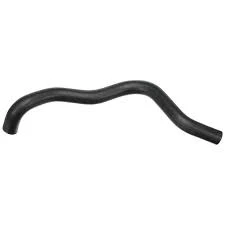Hydraulic Brake Hose for Trailers Ensuring Safety and Performance on the Road
Oct . 03, 2024 01:33 Back to list
Hydraulic Brake Hose for Trailers Ensuring Safety and Performance on the Road
The Importance of Trailer Hydraulic Brake Hoses An Overview
When it comes to the safe operation of trailers, the hydraulic brake system plays a crucial role, and at the heart of this system is the hydraulic brake hose. This vital component is responsible for transmitting brake fluid from the master cylinder to the brakes themselves, ensuring that a trailer can stop safely and effectively. Understanding the function and maintenance of hydraulic brake hoses is essential for anyone operating or maintaining trailers.
What Are Hydraulic Brake Hoses?
Hydraulic brake hoses are flexible tubes that carry brake fluid to the braking mechanisms of the trailer. These hoses are engineered to withstand high pressure, as the braking system operates under significant force when the brakes are engaged. Typically made from reinforced rubber or synthetic materials, these hoses are designed to resist wear, heat, and impacts, making them essential for the durability and reliability of the braking system.
The Function of Hydraulic Brake Hoses
The primary role of hydraulic brake hoses is to facilitate the transfer of hydraulic fluid. When the brake pedal is pressed, the master cylinder generates pressure that pushes brake fluid through the hoses. This pressure activates the brakes on the trailer, allowing it to decelerate or come to a complete stop. In a well-maintained hydraulic brake system, the design of the hose ensures that there is minimal fluid loss and that the pressure remains consistent, providing effective braking performance.
Signs of Wear and Damage
trailer hydraulic brake hose

Like any component of a vehicle, hydraulic brake hoses can wear out over time. Common signs that a brake hose may need replacement include
1. Visible Cracking or Fraying Inspecting the hoses regularly can reveal surface damage, such as cracks or frays that compromise the integrity of the hose. 2. Leaking Brake Fluid If there are puddles of brake fluid under the trailer, it may indicate a leak in the hose or elsewhere in the system. Brake fluid is typically clear or light amber and has a distinct odor. 3. Soft or Spongy Brake Pedal A lack of responsiveness in the brake pedal can be a sign that the hydraulic system is compromised, often due to air in the lines or fluid leaks.
Maintenance Tips for Optimal Performance
To ensure safety and optimal performance, regular maintenance of hydraulic brake hoses is essential. Here are some tips to keep the braking system in good working order
- Routine Inspections Regularly check the hoses for any signs of wear, especially before long trips or heavy hauls. This proactive approach can prevent unexpected failures. - Replace Old Hoses Brake hoses should be replaced every few years, depending on the specific conditions of use. Manufacturers often provide recommendations on replacement intervals, which should be adhered to for safety. - Fluid Checks Regularly check the brake fluid level and its quality. Brake fluid can absorb moisture over time, leading to decreased performance. If the fluid looks discolored or murky, it may be time for a replacement.
Conclusion
The hydraulic brake hose may seem like a small part in the grand scheme of trailer operation, but its role cannot be overstated. The efficiency and safety of the trailer's braking system depend heavily on the condition of these hoses. By investing time in regular maintenance and inspections, trailer owners can ensure that their vehicles remain safe on the road. Always remember that a well-maintained hydraulic braking system is integral not just for the driver's safety, but for all road users. When you prioritize the integrity of your hydraulic brake hoses, you're not just maintaining your trailer's performance—you're also safeguarding lives.
